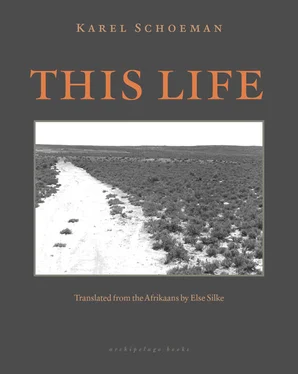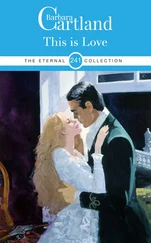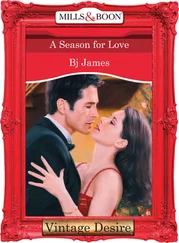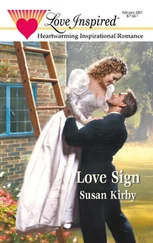Karel Schoeman - This Life
Здесь есть возможность читать онлайн «Karel Schoeman - This Life» весь текст электронной книги совершенно бесплатно (целиком полную версию без сокращений). В некоторых случаях можно слушать аудио, скачать через торрент в формате fb2 и присутствует краткое содержание. Год выпуска: 2015, ISBN: 2015, Издательство: Archipelago, Жанр: Современная проза, на английском языке. Описание произведения, (предисловие) а так же отзывы посетителей доступны на портале библиотеки ЛибКат.
- Название:This Life
- Автор:
- Издательство:Archipelago
- Жанр:
- Год:2015
- ISBN:978-0-914671-16-9
- Рейтинг книги:5 / 5. Голосов: 1
-
Избранное:Добавить в избранное
- Отзывы:
-
Ваша оценка:
- 100
- 1
- 2
- 3
- 4
- 5
This Life: краткое содержание, описание и аннотация
Предлагаем к чтению аннотацию, описание, краткое содержание или предисловие (зависит от того, что написал сам автор книги «This Life»). Если вы не нашли необходимую информацию о книге — напишите в комментариях, мы постараемся отыскать её.
considers both the past and future of the Afrikaner people through four generations of one family. In an elegiac narrator's tone, there is also a sense of compulsion in the narrator's attempts to understand the past and achieve reconciliation in the present. This Life is a powerful story partly of suffering and partly of reflection.
This Life — читать онлайн бесплатно полную книгу (весь текст) целиком
Ниже представлен текст книги, разбитый по страницам. Система сохранения места последней прочитанной страницы, позволяет с удобством читать онлайн бесплатно книгу «This Life», без необходимости каждый раз заново искать на чём Вы остановились. Поставьте закладку, и сможете в любой момент перейти на страницу, на которой закончили чтение.
Интервал:
Закладка:
Maans sent Pieter in to town with one of the farm-hands and the cart to fetch me and my possessions, and he slept over in town that evening. It was the first time since his return that I was completely alone with him, and I am at a loss how to describe that evening we spent together, for over the years he had become a stranger to me, so that his presence was as impersonal as that of any unknown visitor that I had to entertain; yet at the same time I knew that this strange, silent man sitting with me in the candle-light was my brother, my very own brother, my beloved brother, and it was because of that distressful knowledge that I was unable to eat that night, and not because I had to take leave of the house where I had lived for so long. He ate his food, head bowed over his plate in the candlelight, and he did not speak except to say yes, please, and no, thank you, in reply to my own words, peacefully retreated into his own distant world, just as we had known him since his return twenty years before, a thin man with grey hair, who handled his knife and cup with stiff, wooden movements and never looked at me. Never again would the two of us be alone together like this, I realised, never again would we be as certain that we would not be disturbed, never would such an opportunity for frankness and openness present itself to me again. I wanted to reach out and touch his hand, I wanted to stretch out and reach for him, I wanted to pave the way for the questions I had kept bottled up for almost a lifetime; but it was impossible for me, still impossible, and I sat across the table from him and did not say a word.
I did not have many things, a few items of clothing, a brush and comb, my Bible and hymn book and a case of books: they were soon packed and loaded. With my hat already pinned on, I walked around the house that morning to make the final arrangements, to draw the curtains and lock the doors of the rooms. Behind the house the cart stood ready, and on a bench by the kitchen door Pieter sat waiting in the morning sunshine, his back against the wall. I went outside, and when I saw him there, I knew this was my last chance, for even if another unexpected opportunity should arise at a later time, it would be too late then, and I would not be able to make use of it any more.
I sat down beside him on the bench and we sat together like that for a while, with the horses snorting and trampling restlessly. It was spring, it was spring again, and Maans and the others had not been back from the Karoo for long; the air was still sharp and cold, but the sunlight was bright and silvery and there were blossoms on the trees. “Pieter,” I said at last, softly, so that no one else would hear, even though there was no one near us; “Pieter, what happened to Sofie?”
After his return, Pieter gradually learned to perform certain tasks and to follow simple instructions; he understood that he had to come in to town to fetch me, though someone had been sent along for safety’s sake, and that the cart had to be inspanned and the things loaded. As far as we knew, however, he had no idea of the reasons behind the instructions or the connection between the specific actions he performed: how much he remembered, how much he understood, what he thought and felt, if, indeed, any thoughts and feelings were left, remained a mystery to us after all the years, just like Pieter himself, withdrawn from us in his silent world. Perhaps, I sometimes thought, perhaps he knew more than we suspected and he was just unable to express it, like the old people or the bywoners in the district who had never learned to write; or perhaps he had simply reached a point where he felt no further need to speak of what he had experienced and where he understood the meaninglessness of all efforts to communicate. Here, too, as we sat together on the bench at the kitchen door in the spring sunshine his reaction was ambiguous: to me, waiting anxiously and nervously for his answer, it seemed that the name I had mentioned was not unfamiliar to him and that he recognised it, but that the memories it evoked caused him to withdraw into himself, rather than reply to my question. He made no reply, and when at last I turned to look at his face, his expression was gentle and friendly: it was the open, vacant look of a child, waiting for me to give the order to get up and leave. I would get no reply: I would never know.
We got up, we climbed in; there was no reason to delay. We rode away, around the corner, past the church, along the front street, past the last houses and the trees with their sparse, glittering blossoms in the spring sunshine; past the graveyard and out, following the white road through the veld, past Groenfontein and up the rise to Driefontein and Vloksberg Pass at the edge of the world. I was going back.
6

That is all, there is nothing more to tell. I want to sleep; I want to rest. Or if that is not possible, not yet, I want to hear the cocks crow in the distance and see the shutters outlined against the first grey light of dawn. No sound reaches me in the dark, however, and the window remains invisible to me. Thus I am still not relieved of the burden to remember, still forced to continue with my long monologue as I lie here waiting to be set free. Why? There is really nothing more to tell.
When it became known in town that I was returning to the farm, the neighbours might have sympathised if I had allowed it. They dearly wanted to gossip about Stienie but, discouraged by my silence, they could finally do no more than shake their heads ruefully and steer the conversation back to poor Betta — what a shame, it is just not right. They were probably expecting the worst where I was concerned too but, as before, I had no trouble with Stienie. She was more difficult now, impatient and irritable and short-tempered, but everything in her house was exactly the way she wanted it and there was never any reason for conflict between the two of us.
During my long absence much had indeed changed, but the house had never been mine, though I had grown up there, and it had been so many years since I last lived there that it had become unfamiliar to me, so that I was surprised anew every time I recognised something from the past. There were glass panes in the windows and a wooden floor had been laid in the voorhuis; there were armchairs and a sofa, and a lamp had been suspended from the ceiling, and large framed photographs of Maans and Stienie, taken in Worcester, hung on the walls. In the kitchen there were more things than we would ever need and, where Mother and I got by with only old Dulsie for all those years, there were now more than enough women to do the housework. My old room was still the same, however, and I unpacked my things there, put my clothes in the drawers, the brush and comb on the chest and the Bible beside the bed, and I knew that this homecoming would be the end of the journey: for a moment I stood in front of the small, old-fashioned window and looked out over the familiar yard and veld, and with undeniable certainty I knew I would die in this room with its dung floor and wooden shutters.
“Tantetjie has not seen the beautiful stone we erected for Oupa, has she?” Stienie remarked at the table. “And Maans had one made for his mother too. We must go and show Tantetjie this afternoon.” I had been warned, however, and I followed the footpath alone, past the place where the shed, the outside rooms and the kraal used to be, to the graveyard beyond the ridge where a white marble stone had been erected over Tannie Coba’s grave with Sofie’s name and date of birth on it and the date of her death that I had entered in the family Bible years ago with Mother standing over me. It was then, as I stood in the graveyard alone, that I realised how completely the farm had passed into Maans and Stienie’s hands, and I accepted it: if this was how they wished to give meaning to this nameless grave and this arbitrary date, then this was what it would henceforth signify; only my memory contested this new interpretation, and it was up to me to keep silent and to see that this unsettling knowledge remained unspoken until the final threat disappeared along with me. What had happened was in the past, after all, and how the next generation wished to apply or interpret the relics of the past was their concern: the words, dates and facts they wished to remember were chiselled into the stone, in lead-filled letters, to be read and accepted, or one day to crumble and be lost together with the weathered stone, its last fragments never to be found among the rank bushes and shrubs.
Читать дальшеИнтервал:
Закладка:
Похожие книги на «This Life»
Представляем Вашему вниманию похожие книги на «This Life» списком для выбора. Мы отобрали схожую по названию и смыслу литературу в надежде предоставить читателям больше вариантов отыскать новые, интересные, ещё непрочитанные произведения.
Обсуждение, отзывы о книге «This Life» и просто собственные мнения читателей. Оставьте ваши комментарии, напишите, что Вы думаете о произведении, его смысле или главных героях. Укажите что конкретно понравилось, а что нет, и почему Вы так считаете.












